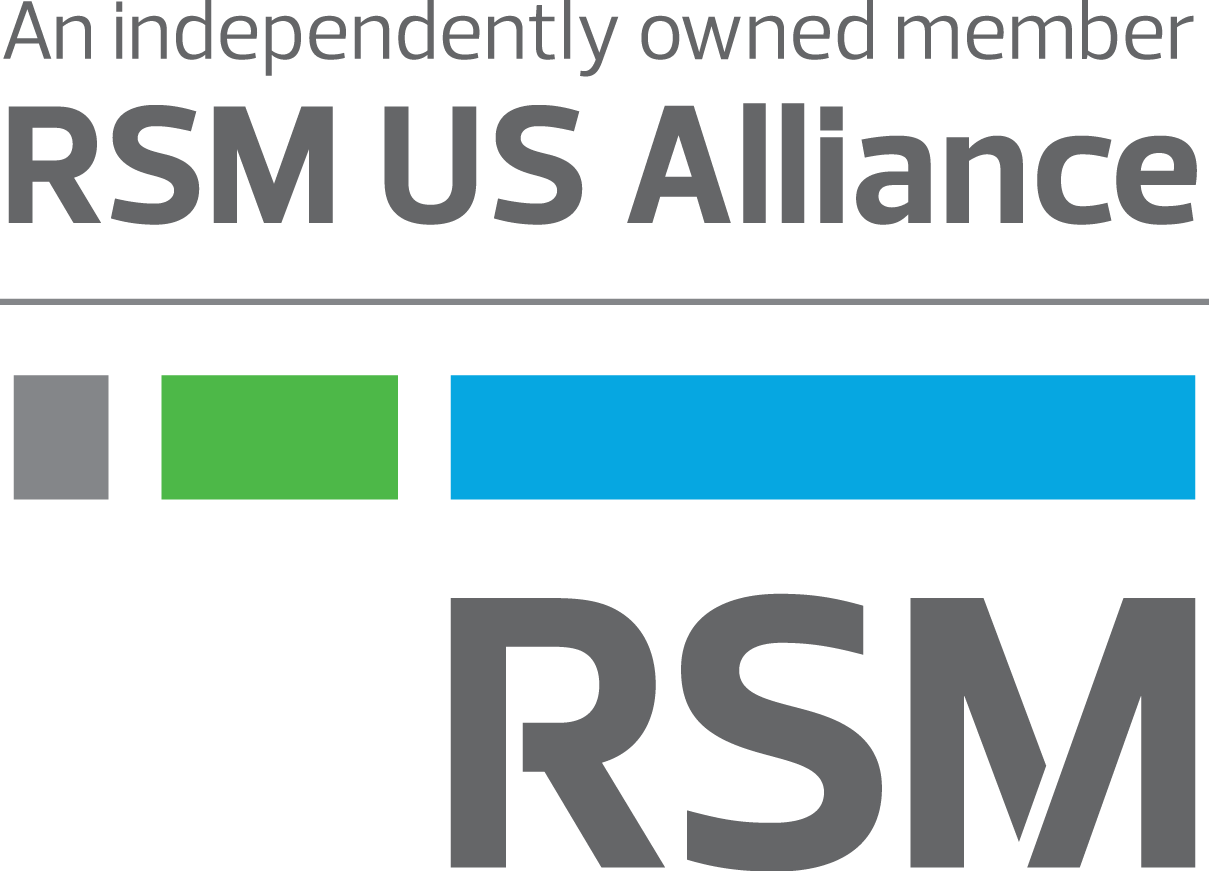
State taxation of digital assets evolves as legislatures return
TAX ALERT | January 09, 2023
Authored by RSM US LLP
Executive summary: Maturing digital asset landscape to greet state legislatures
State legislatures and taxing authorities responded to digital assets more in 2022 than any time before. Will an ever-changing landscape stall state digital asset tax policy?
State taxation of digital assets evolves as legislatures return
It is not difficult to associate digital assets recently with a number of negative dynamics including collapses, fraud and fads with headlines reflecting the same. As of writing this article, the price of Bitcoin has dropped over 60% in one year, both volume and prices have fallen significantly among NFT marketplaces and several high-profile criminal investigations of cryptocurrency exchanges have shaken investor and user confidence. However, the death of digital assets and their various associated technologies has been greatly exaggerated, if left to headlines alone. Cryptocurrencies remain actively traded, the utilization of NFTs for purposes beyond a mere digital image continues to grow and blockchain innovation is rapidly expanding. That is to say, even with the events of the past year, taxpayers transacting, creating or utilizing digital assets must continue their diligence in understanding the state and local tax consequences of those activities with little guidance from state tax authorities. There is no doubt that 2022 was a banner year for states responding to digital asset taxation, but cumulatively, only a handful of states have provided meaningful guidance.
We identified a number of digital asset developments six months ago. A review of actions since that article is described below as well as an analysis of what additional guidance could mean for states tackling digital asset taxation in 2023.
Colorado accepts cryptocurrency as a method of state tax payment
Beginning Sept. 1, 2022, the Colorado Department of Revenue will accept cryptocurrency as an additional form of payment for all state taxpayers. This includes individual income tax, business income tax, sales and use tax, withholding tax, severance tax and excise fuel tax.
Illinois provides cryptocurrency guidance through an annual survey
On Oct. 31, 2022, the Illinois Department of Revenue released IT 22-0010-GIL, providing guidance on new cryptocurrency-related questions added to the corporate income tax questionnaire. The guidance explains that cryptocurrency is treated as property and that taxpayers acquiring cryptocurrency take basis in the cryptocurrency equal to its cost. Gain or loss is then realized upon sale. Additionally, taxpayers who receive cryptocurrency in payment for services must include the fair market value of the currency in gross income.
Kansas Legislative Division of Post Audit issues cryptocurrency tax policy report
In response to Kansas state Sen. Robert Olson’s request, the Kansas Legislative Division of Post Audit, a non-partisan audit arm of the Kansas legislature, released a report on cryptocurrency tax policies. The report finds that the state’s cryptocurrency tax policies generally align with federal policies but notes enforcement and lack of federal guidelines may result in underreporting of cryptocurrency activity.
Michigan discusses the tax treatment of digital currencies and cryptocurrencies
The Michigan Department of Treasury Update for August 2022 included a discussion of digital currencies and cryptocurrencies as well as an explanation of their state income tax treatment. The update explains that the starting point for the Michigan income tax return is federal AGI, and while Michigan provides certain adjustments from AGI, there are no current rules or policies that differ from federal treatment of virtual currency. Ultimately, the update directs taxpayers to IRS Notice 2014-21 for addition information on the federal treatment of virtual currency.
Minnesota describes NFTs in its Digital Products Fact Sheet
In its August revision of the Digital Products Sales Tax Fact Sheet 177, the Minnesota Department of Revenue explains that NFTs are subject to sales and use tax when the underlying product, whether goods or services, is taxable in Minnesota. The department recognizes that NFTs may entitle purchasers to receive products or services including digital products such as music, video games, admissions, food and tangible personal property.
New York clarifies unclaimed property treatment of virtual currency
In November, New York Gov. Kathy Hochul signed Senate Bill 9360, adding virtual currency to the state’s unclaimed property law. The bill provides that virtual currency held by banks, corporations or other virtual currency businesses is deemed abandoned after a period of five years if the last known address of the person entitled to the currency is located in New York or the address is not known but the entity holding the currency is incorporated in the state. Abandoned virtual currency must follow the state’s escheatment laws.
New York pauses certain proof-of-work mining operations
In November, Gov. Hochul signed Senate Bill 6486 placing a two-year moratorium on approving new permits, or renewing existing permits, for electric generating facilities that provide electricity to proof-of-work cryptocurrency mining operations, unless the facility is exclusively using renewable energy sources. Proof-of-work mining generally uses specialized equipment and requires significant energy consumption. The law also requires an impact study on cryptocurrency mining’s impact on the environment. For a more tax-focused discussion on proof-of-stake authentication, another type of authentication methodology, please consider our article, Crytpoassets: How should proof-of-stake rewards be taxed?
Washington state hosts “listening session” over interim NFT guidance
On Oct. 20, 2022, the Washington Department of Revenue hosted a listening session in response to the most comprehensive state guidance on NFTs to date. In addition to seeking feedback on the guidance, department officials clarified that the guidance applies from 2009 when the state first imposed a sales tax on digital products, although it should be noted NFTs did not exist at that time. Subsequent department comments have suggested that it is not yet clear whether the guidance will be enforced against transactions prior to July 1, 2022, the date the interim guidance was released.
Wisconsin provides brief guidance on NFTs
The Wisconsin Department of Revenue briefly describes the taxability of NFTs in its October Tax Bulletin. The bulletin explains that the sale or purchase of an NFT may be taxable if the underlying product, good, or service is taxable in Wisconsin. Three examples of NFTs subject to tax include purchasing music or movies, the admission to a sporting event, or a tangible piece of artwork.
Takeaways
Digital assets, blockchain, NFTs and other terminology have entered the vernacular but remain misunderstood in some contexts due to the complexity and nuance behind these various technologies. Many states moved to provide basic sales and use tax guidance as the market and volume of NFT trading reached a fever pitch in 2022. As seen in some states, this guidance was mostly informal or interim, without much analysis or appreciation of the various uses of NFTs. While the NFT economy may not currently exist as it did in the summer or in January 2022, it is likely states will continue informal guidance. Legislatively, however, much of the discussion of digital asset taxation has remained absent from tax bill proposals.
Better state tax guidance for digital asset taxpayers may not always remain a mystery. The Multistate Tax Commission, a multistate governmental organization, has begun a project to make uniformity recommendations to the states on the taxation of digital products, including NFTs. While generally thorough and well-intentioned, such projects may take significant time to complete, and the states are not bound to adopt any final recommendations. Finally, in terms of virtual currencies, the states have appeared mostly content to follow the federal treatment and wait for additional federal guidance on enforcement before taking any meaningful action.
While we remain hopeful for more clarity on the taxation of digital assets, the states may be preoccupied with various other priorities in 2023. Taxpayers in the digital asset space are strongly encouraged to consider how state taxes may impact transactions involving any digital asset, including cryptocurrencies and NFTs.
This article was written by Mo Bell-Jacobs, Patti Mann Mehta and originally appeared on Jan 09, 2023.
2022 RSM US LLP. All rights reserved.
https://rsmus.com/insights/tax-alerts/2023/State-taxation-digital-assets-evolves-legislatures-return.html
The information contained herein is general in nature and based on authorities that are subject to change. RSM US LLP guarantees neither the accuracy nor completeness of any information and is not responsible for any errors or omissions, or for results obtained by others as a result of reliance upon such information. RSM US LLP assumes no obligation to inform the reader of any changes in tax laws or other factors that could affect information contained herein. This publication does not, and is not intended to, provide legal, tax or accounting advice, and readers should consult their tax advisors concerning the application of tax laws to their particular situations. This analysis is not tax advice and is not intended or written to be used, and cannot be used, for purposes of avoiding tax penalties that may be imposed on any taxpayer.
RSM US Alliance provides its members with access to resources of RSM US LLP. RSM US Alliance member firms are separate and independent businesses and legal entities that are responsible for their own acts and omissions, and each are separate and independent from RSM US LLP. RSM US LLP is the U.S. member firm of RSM International, a global network of independent audit, tax, and consulting firms. Members of RSM US Alliance have access to RSM International resources through RSM US LLP but are not member firms of RSM International. Visit rsmus.com/aboutus for more information regarding RSM US LLP and RSM International. The RSM(tm) brandmark is used under license by RSM US LLP. RSM US Alliance products and services are proprietary to RSM US LLP.

VPTAX is a proud member of RSM US Alliance, a premier affiliation of independent accounting and consulting firms in the United States. RSM US Alliance provides our firm with access to resources of RSM US LLP, the leading provider of audit, tax and consulting services focused on the middle market. RSM US LLP is a licensed CPA firm and the U.S. member of RSM International, a global network of independent audit, tax and consulting firms with more than 43,000 people in over 120 countries.
Our membership in RSM US Alliance has elevated our capabilities in the marketplace, helping to differentiate our firm from the competition while allowing us to maintain our independence and entrepreneurial culture. We have access to a valuable peer network of like-sized firms as well as a broad range of tools, expertise, and technical resources.
For more information on how the VPTAX can assist you, please call us at (408) 278-8370.